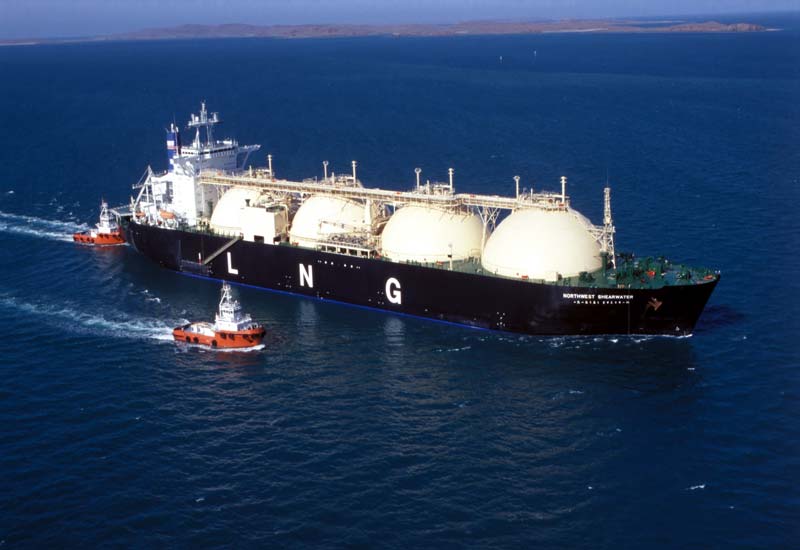- Price of Cooking Gas Soars as Pirates Attack LPG Vessel
The average price for the refilling of a five kilogramme (kg) cylinder of Liquefied Petroleum Gas (LPG) or Cooking Gas, has increased by 5.48 per cent month on month to N2,708.38 in February 2017 from N2,567.56 in January 2017, and 45.59 per cent year-on-year.
The National Bureau of Statistics (NBS), which made the disclosure in its monthly LPG price watch, listed states with the highest average price for the refilling a 5kg-cylinder of cooking gas to include Edo N3,030; Abia, Akwa Ibom, Bayelsa, Cross River, Zamfara, Rivers and Kebbi, N3,000; and Delta, N2,984.62.
The development undermines Federal Government’s efforts to boost domestic gas utilisation, particularly per capita LPG consumption, reputed as among the lowest, despite holding the seventh largest gas reserves, globally.
The immediate consequence of this is that more households would resort to the felling of trees as well as the use of other alternatives like coal and kerosene with attendant adverse environment implications.
But, operators in the sector attributed the high cost of the commodity to pirate attack of a Lagos-bound LPG vessel.Hitherto, the price of refilling a 5kg gas cylinder had for a very long time been between N1,200 and N1,500, but price had shot up to between N2,500 and N3,000.
A restaurant operator, who relies on cooking gas for her daily business, Mrs. Loretta Okechukwu, said the price of the product was outrageous, considering the current situation in the country.
She said: “I used to buy the 12.5kg of gas for N3,000, and it lasts for three weeks or even up to one month. In the last three years, the price had been stable, cheaper and easier to get than kerosene.
“But, since the beginning of this year, the price has refused to come down. It has continued to increase. The Federal Government really has to do something about it.”She said it was unfortunate that prices of goods kept increasing on a daily basis and consumers have to bear the brunt.
The NBS data listed states with the lowest average price for the refilling of a 5kg gas cylinder to include Osun N2,393.75; Oyo N2,376.47; and Ondo N2,372.73.However, the Bureau disclosed that the average price for the refilling of a 12.5kg gas cylinder decreased by 2.95 per cent month-on-month to N5,345.87 in February 2017 from N5,508.16 in January 2017, and 45.49 per cent year-on-year.
It said: “States with the highest average price for the refilling of a 12.5kg cylinder for cooking gas were Akwa Ibom, Cross River, Edo, Kebbi, Rivers Yobe, N6,000.00; Delta, N5,923.08 and Borno, 5,833.33.
“States with the lowest average price for the refilling of a 12.5kg cylinder for cooking gas were Lagos, N4,797.22; Ogun, N4,777.28, and Oyo, N4,322.22.”The Bureau also revealed that Borno recorded the highest average cooking gas price for refilling 5kg cylinder in the North East Region for February, while Bauchi, Gombe and Taraba states recorded the least average price.
It added that Kebbi and Zamfara states recorded the highest average cooking gas price for refilling 5kg cylinder in the North West region while Jigawa, Kaduna, Kano and Katsina states recorded the least average price.
“Yobe recorded the highest average cooking gas price for refilling 12kg cylinder in the North East Region while Adamawa, Bauchi, Gombe and Taraba states recorded the least.
Kebi State recorded the highest average cooking gas price for refilling 12.5kg cylinder in the North West Region and Kano State the least.
“Anambra State recorded the highest average cooking gas price for refilling 12.5kg cylinder in the South East region while Imo State recorded the least average price.
“Akwa Ibom, Cross River, Edo and Rivers State record the highest average cooking gas price for refilling 12.5kg cylinder in the South South region while Bayelsa State recorded the least average price,” it added.
President of the Nigerian LPG Association, (NLPGA), Adedayo Adeshina, attributed the rise in price of cooking gas to pirate’s attack on LPG vessels on its way to Lagos, which delayed discharge of the product, and adding that the issue has been resolved.
Adeshina said the vessel owner had requested for more insurance from the Navy and there is already free flow of product.He said that consumers should expect a stable price in the price, noting that it may take a while to establish stability onece there is any disruption in activities.

 Naira3 weeks ago
Naira3 weeks ago
 News4 weeks ago
News4 weeks ago
 Naira4 weeks ago
Naira4 weeks ago
 Naira3 weeks ago
Naira3 weeks ago
 Jobs3 weeks ago
Jobs3 weeks ago
 Travel3 weeks ago
Travel3 weeks ago
 Naira3 weeks ago
Naira3 weeks ago
 Investment4 weeks ago
Investment4 weeks ago






























